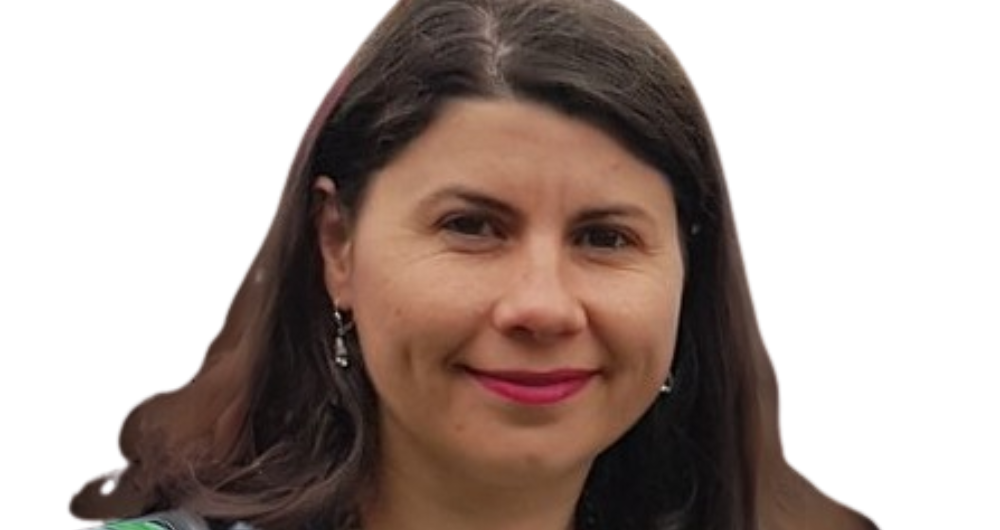
Associate Professor Georgiana Ifrim started her academic career studying Computer Science at University of Bucharest, Romania. She enjoyed the maths involved and decided to continue to a Masters, which coincided with Romania getting access to the Shengen common travel area and a chance to study in the EU.
A scholarship to the Max Planck Institute for Informatics in Germany gave Georgiana her first real exposure to Machine Learning, then known as Statistical Learning.
‘This kickstarted my interest in the number-crunching behind AI,’ she says. ‘I continued on to a PhD at Max Planck under Prof Gerhard Weikum, using statistical analysis and machine learning to categorise natural language text such as Wikipedia pages.’
‘Max Planck proved an excellent environment in which to learn the workings of research but it was a high pressure, elite environment and researchers don’t usually stay there beyond their PhD study’, she says. It was then a choice of going to work for industry or further research – Georgiana already knew that reading papers and working in research teams suited her. A postdoc in Bioinformatics at Aarhus University, Denmark, followed, where she worked with Prof Carsten Wiuf to apply Natural Language Processing techniques to automate data labelling for very large protein sequence databases.
‘I’ve always been interested in how to develop machine learning algorithms in situations where there are small or incomplete datasets. This is very relevant to health informatics where consultants often don’t have the time to label large amounts of data. Natural language techniques that I had used for news article categorisation could be used in a health setting, feeding the algorithms protein sequences instead of English text.’
Georgiana said that this cross-disciplinary approach appealed to her and was part of what drew her to the Insight Research Ireland Centre for Data Analytics.
‘I was on the lookout to move to the next step of my career. I originally looked at the UK but immigration policy got in the way – Ireland offered me the opportunity to come and work here. I moved to Cork to do a postdoc fellowship in UCC, in Prof Barry O’Sullivan’s lab. My work involved the use and forecast of Irish electricity market data to create energy management tools. At this point discussions were emerging about the establishment of a new national data research institute – Insight.’
The establishment of the Insight Centre – part of the Science Foundation Ireland Centres Programme – bucked the investment trend in the rest of Europe at the time, says Georgiana. ‘It was the post-crash period. The country was in economic trouble but the government was pumping money into research. It was a huge risk and it paid off. Very few countries did that, most cut back. It was a brilliant move.’
Georgiana joined the new Centre as a research fellow working with Assoc Prof Neil Hurley in UCD Computer Science. ‘Being part of a multi-site centre with admin support and seed funding was crucial’, she says.
‘I was fully embedded in Insight from the start, running weekly seminars, seeing new faces every day. I was soon able to apply for a faculty position and I had loads of support to figure out the funding landscape. I always knew where to go to ask questions and get support. The seed funding I got from Insight at the beginning meant I could hire a PhD and pursue my research agenda. This was massive; once you have some funding it’s much easier to secure more from other sources.’
Insight’s business development managers put Georgiana in touch with industry and the centre KPIs kept her on track.
‘I started working with the Irish Times to help them use social media more effectively for news distribution and production. The work was successful and the company licensed a couple of our prototypes.’
Now Georgiana is working on time series data from sensors that can be worn in a belt or smart watches. She collaborates with human movement scientists Prof Brian Caulfield and Assistant Prof Cailbhe Doherty whom she met through Insight. ‘Human activity data poses particular challenges. I’m working on algorithms to analyse this kind of data at scale in a manner that is transparent and explainable. It’s a very interesting and open area of research right now.’
Being part of a multi-site centre has meant that Georgiana has a very large network to draw from, she says. ‘The way Insight is structured – it’s a network multiplier,’ she says. ‘I attend seminars in multiple universities, and the annual scientific plenary brings data researchers together from all over the country’.
‘If you start out as junior faculty and don’t have the kind of support that I’ve had, it can be very difficult to get started. Insight gave me access to lots of leadership and mentorship opportunities from very early on. Now I am an Associate Professor at UCD and Director of the ML-Labs Centre for Research Training in Machine Learning. There is a saying that ‘A high tide lifts all boats’. Insight was my high tide.’